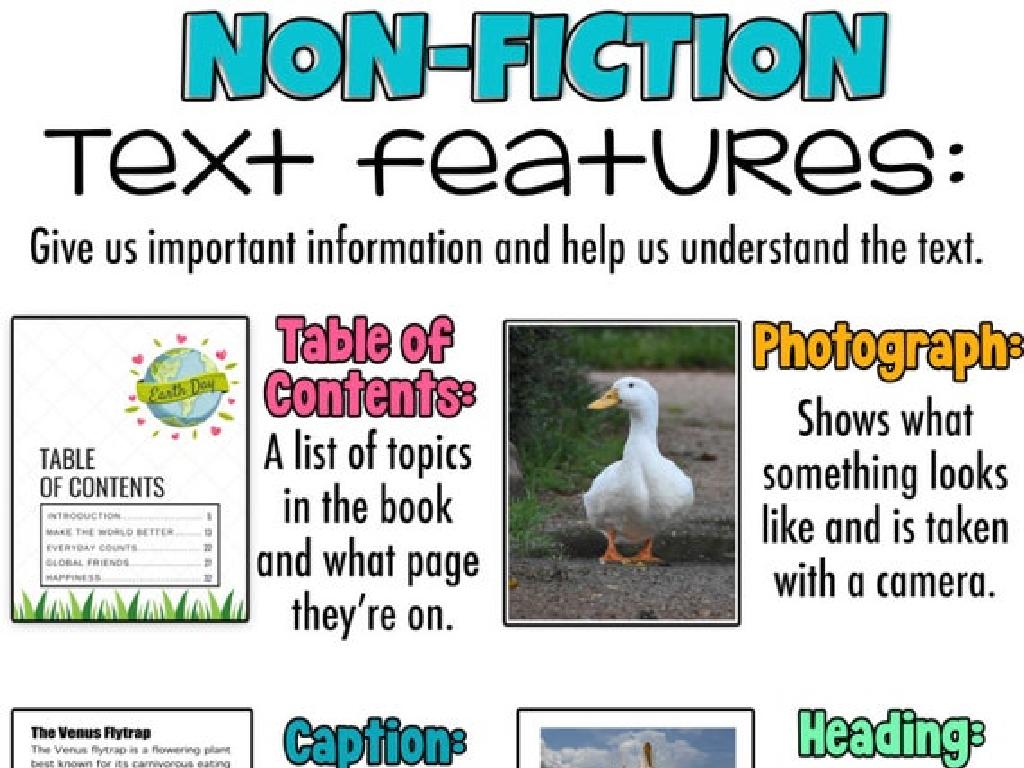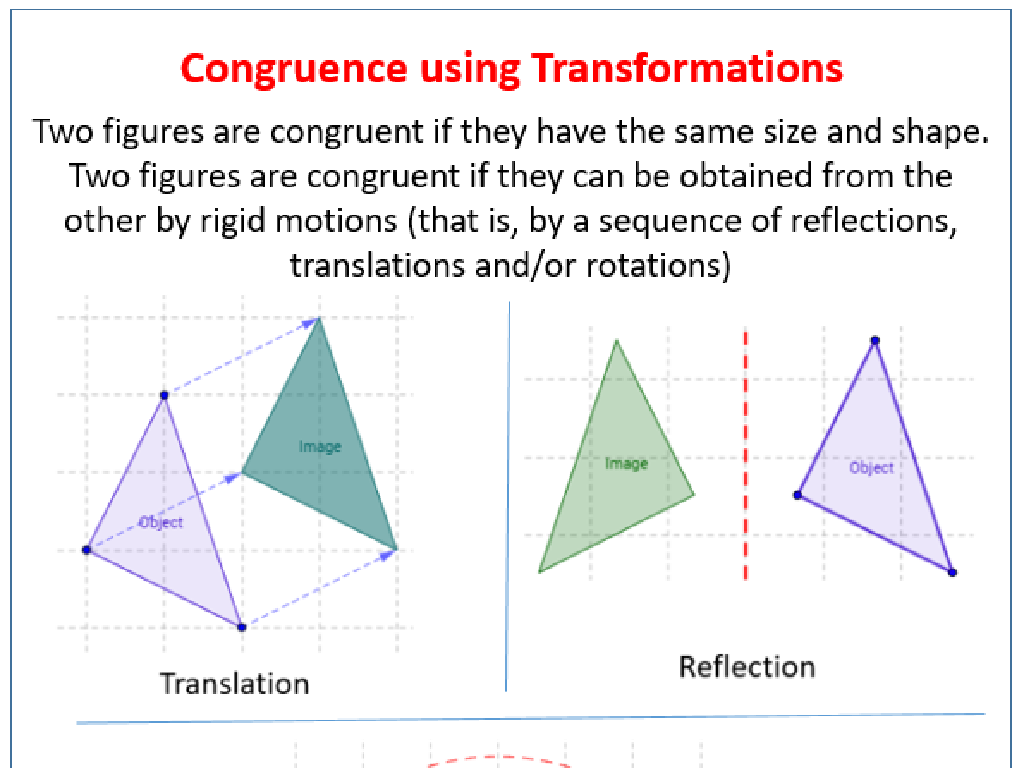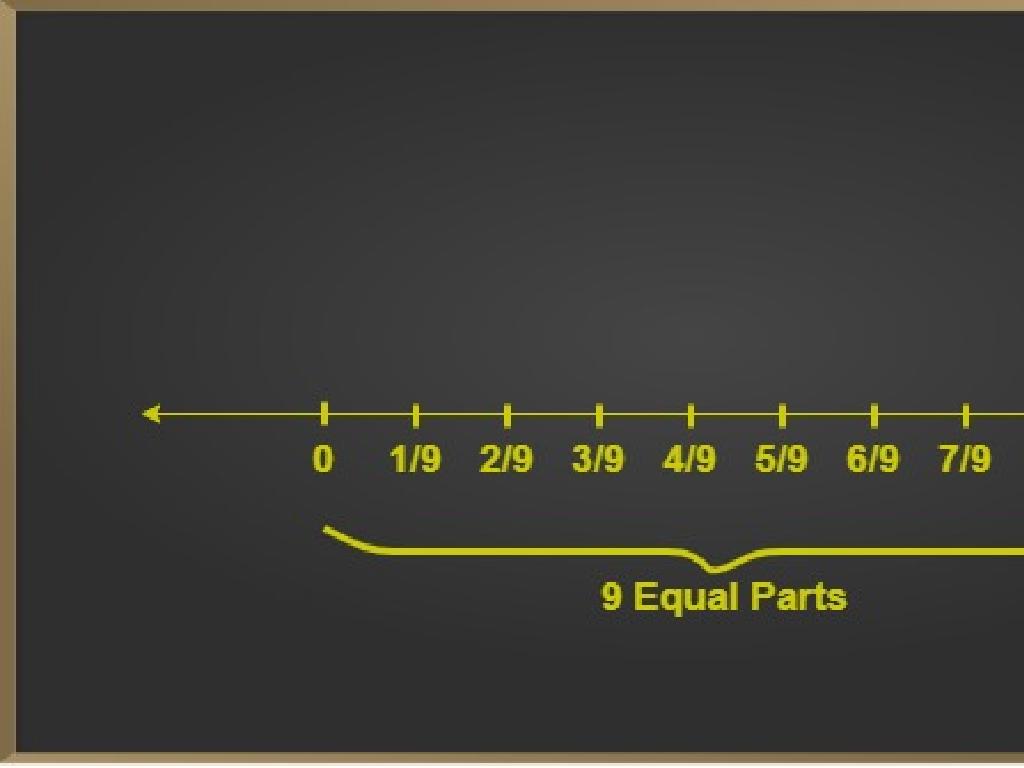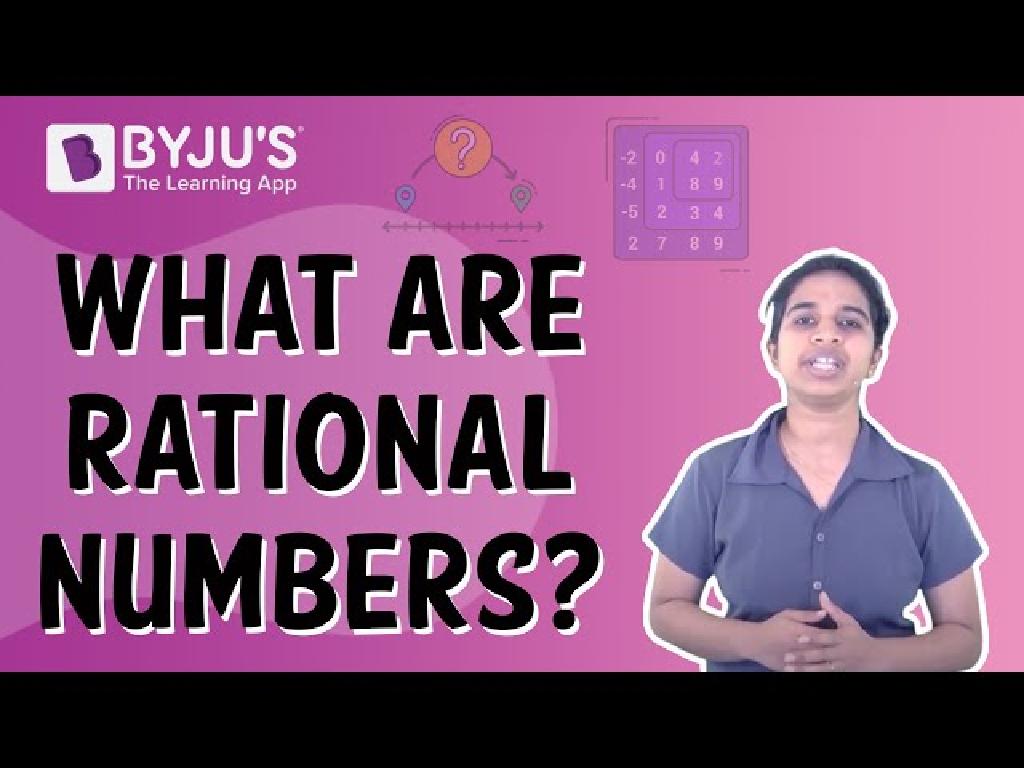Use Academic Vocabulary In Context: Informational
Subject: Language arts
Grade: Eighth grade
Topic: Context Clues
Please LOG IN to download the presentation. Access is available to registered users only.
View More Content
Mastering Context Clues with Academic Vocabulary
– Grasp context clues significance
– Context clues are hints to word meanings
– Focus: Academic vocabulary in texts
– Words specific to subjects like science or math
– Objective: Infer meanings of new words
– Use surrounding text to understand unfamiliar terms
– Strategies for using context clues
– Look for definitions, synonyms, antonyms, examples
|
This slide introduces the concept of context clues and their importance in understanding academic vocabulary within informational texts. The objective is to equip students with the skills to deduce the meaning of unfamiliar words without a dictionary, by using the surrounding text. Emphasize strategies such as identifying definitions provided after unfamiliar terms, recognizing synonyms and antonyms that clarify meaning, and finding examples that illustrate the word in use. Encourage students to practice these strategies with various academic texts to become more proficient in comprehending complex materials.
Understanding Context Clues
– Define Context Clues
– Clues in the text that help deduce word meanings
– Explore Types of Context Clues
– Types: Definition, Synonym, Antonym, Example, Inference
– Importance in Reading Comprehension
– They aid in understanding new vocabulary within texts
– Practice with Varied Texts
– Apply knowledge to informational texts across subjects
|
Context clues are hints found within a sentence, paragraph, or passage that a reader can use to understand the meanings of new or unfamiliar words. Teaching students about the different types of context clues definition, synonym, antonym, example, and inference empowers them to become more independent in their reading. Emphasize the importance of context clues in improving reading comprehension, particularly with informational texts where academic vocabulary is often used. Encourage students to practice identifying and using context clues in a variety of texts, such as science articles, history texts, and technical manuals, to enhance their learning across all subjects.
Navigating Academic Vocabulary
– Define Academic Vocabulary
– Specialized language used in academic dialogue and texts.
– Examples of academic terms
– Terms like ‘analyze’, ‘cite’, ‘hypothesis’, ‘infer’.
– Academic Vocabulary in complex texts
– It’s crucial for grasping the meaning of scholarly articles and textbooks.
– Enhancing comprehension
– Knowing these words helps dissect and understand dense material.
|
This slide introduces students to the concept of academic vocabulary, which includes words commonly used in educational and professional settings. These terms are essential for students to understand and engage with complex texts across various subjects. Provide examples of academic vocabulary and discuss how these words function within a text to convey precise meaning. Emphasize the importance of context in determining the definition and application of these words. Encourage students to actively look for academic vocabulary in their readings and to use context clues to infer meanings. This will aid in their overall comprehension and ability to analyze informational texts.
Using Context to Understand Academic Vocabulary
– Strategies for context clues
– Use definitions, synonyms, antonyms, and inferences.
– Practice with sentence examples
– Identify clues: definition, restatement, contrast, inference.
– Group activity on paragraph clues
– Work together to find clues in a paragraph.
– Sharing findings in class
– Discuss as a class the different clues discovered.
|
This slide introduces students to the concept of using context to decipher the meaning of academic vocabulary. Begin by discussing strategies such as looking for definitions provided in the text, synonyms and antonyms, or making inferences based on the surrounding information. Provide practice sentences for students to apply these strategies. Then, move on to a group activity where students will analyze a paragraph to find context clues that help define challenging words. Each group will share their findings, promoting collaborative learning and reinforcing the importance of context in understanding academic vocabulary. The teacher should prepare a paragraph with rich context clues and guide the discussion to ensure all students grasp the concept.
Context Clues: Deciphering Academic Vocabulary
– Read a passage as a class
– Highlight academic vocabulary
– Identify challenging words and their role in the text
– Infer meanings using context
– Look for hints within the text around the unknown words
– Discuss our interpretations
– Share thoughts on word meanings and compare with peers
|
This slide is aimed at enhancing students’ ability to use context clues to determine the meaning of academic vocabulary within an informational text. Start by reading a passage together as a class to provide a shared experience. Guide students to highlight or note down academic vocabulary within the passage. Encourage them to use context clues such as definitions, examples, or restatements found in surrounding sentences to infer the meanings of these words. Afterward, facilitate a class discussion where students share their interpretations and understandings, providing a collaborative learning environment. This activity will help students become more independent readers and improve their comprehension of complex texts.
Group Exercise: Context Clue Challenge
– Break into small groups
– Each group gets a unique passage
– Identify academic vocabulary
– Find and highlight words that are specific to the subject
– Use context to explain meanings
– Look for hints in the text around the word to infer meaning
|
This group exercise is designed to enhance students’ ability to work collaboratively to decipher the meaning of academic vocabulary using context clues. Divide the class into small groups to foster a more intimate learning environment where each student can participate actively. Provide each group with a passage that contains academic vocabulary relevant to the subject they are studying. The task for each group is to identify these words and use context clues within the passage to explain their meanings. Encourage students to discuss among themselves and use strategies such as looking for definitions, synonyms, antonyms, examples, or explanations in the surrounding text. This activity will help students improve their critical thinking and analytical skills in understanding complex texts. As a teacher, circulate around the room to guide discussions, answer questions, and ensure that each group is on task.
Class Activity: Crafting Sentences with Academic Vocabulary
– Select an academic vocabulary word
– Compose a sentence with the chosen word
– Embed context clues within your sentence
– Use synonyms, definitions, or examples as clues
– Aim to clarify the word’s meaning for classmates
|
This activity is designed to enhance students’ understanding and usage of academic vocabulary in context. Students will choose a word typically used in informational texts and write a sentence that correctly uses this word. They must include context clues such as synonyms, definitions, or examples that help others infer the meaning of the word without looking it up. For the teacher: Prepare a list of academic vocabulary words suitable for eighth graders. Provide guidance on writing effective context clues. During the activity, encourage students to share their sentences and discuss the effectiveness of the context clues provided. This will foster peer learning and critical thinking about word usage.
Review and Reflect: Academic Vocabulary in Context
– Share your crafted sentences
– Discuss context clues’ role
– How did surrounding words help define the term?
– Reflect on academic vocabulary significance
– Why is it crucial in academic and informational texts?
– Understand vocabulary in informational texts
|
This slide aims to consolidate the students’ understanding of using context clues to determine the meaning of academic vocabulary in informational texts. Students will share sentences they’ve created using new vocabulary, fostering peer learning. The discussion will focus on how context clues like synonyms, antonyms, definitions, and examples within the text aid comprehension. Emphasize the importance of academic vocabulary in understanding complex subjects and enhancing communication skills. Reflecting on this can help students appreciate the value of precise language in academic settings and its impact on their learning journey.
Homework: Academic Vocabulary in Context
– Read the assigned article
– Find five academic vocabulary words
– Look for challenging or subject-specific terms
– Write a paragraph with these words
– Incorporate the words naturally, showing their meaning
– Use context clues for meaning
– Context clues include definitions, synonyms, antonyms, examples
|
This assignment is designed to enhance students’ understanding and usage of academic vocabulary within an informational context. Students are tasked with reading an article and identifying five academic or domain-specific words. They must then write a paragraph using these words, ensuring that the context clues within their writing help to define the vocabulary. This exercise will help students to not only expand their vocabulary but also to improve their ability to infer meaning from context, a critical reading comprehension skill. Encourage students to share their paragraphs in the next class to foster discussion and peer learning.
Closing Thoughts: Mastering Context Clues
– Recap: Context Clues Usage
– Reviewed types and examples of context clues.
– Academic Vocabulary Importance
– Understanding academic vocabulary is crucial for academic success.
– Apply Context Clues Daily
– Encourage reading diverse texts to naturally improve vocabulary.
– Keep Practicing and Exploring
|
As we wrap up today’s lesson, remember the importance of context clues in understanding academic vocabulary. These clues are the keys to unlocking the meaning of complex texts and are essential for your success in school and beyond. By consistently applying context clues to your everyday reading, you’ll enhance your comprehension and expand your vocabulary. Keep practicing by reading various informational texts, and don’t hesitate to look for clues within the text to help you understand new or difficult words. Encouragement and practice are the pillars of mastering this skill.





